I Quit Cheer Because I Couldn't Take a Knee
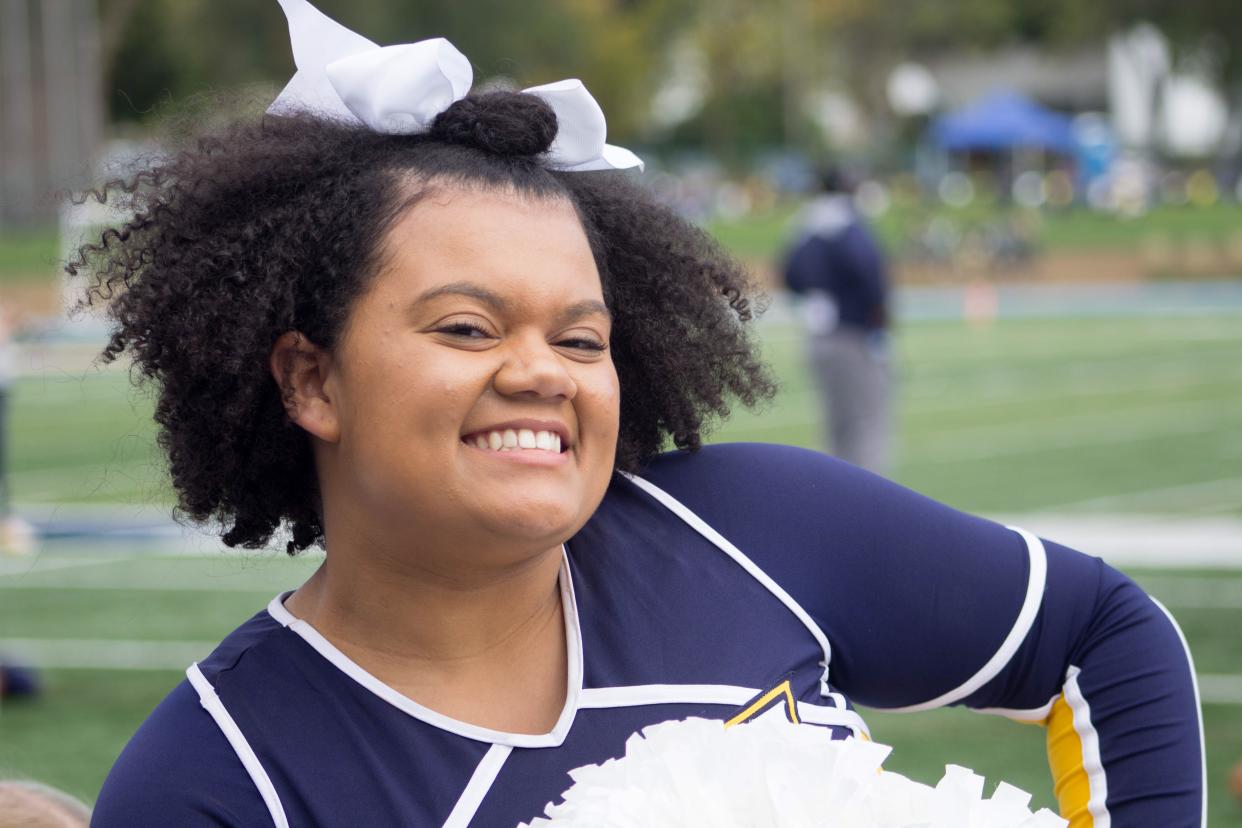
At a September 30 football game, 19-year-old Buena Vista University cheerleader Alyssa Parker took a knee during the national anthem to bring awareness to police brutality and racial injustices. A week later, her Iowa school instituted a policy mandating players and cheerleaders stand for the anthem - and she was forced to choose between her personal beliefs and the sport she loves. Here, she tells Cosmopolitan.com her story.
As I typed up my resignation letter to my cheer coach on October 25, I thought about Jordan Edwards. Jordan should have been with his friends and family that October day, celebrating his 16th birthday. But six months prior, the black teen was shot and killed by a white cop while driving home from a party with friends. I didn't know Jordan personally - he was from Texas and I've lived in Iowa my entire life - but reading about his death online hit close to home, because it could have just as easily been me or one of my friends that died that day. It seemed like a sign that on October 25, the very day I decided to quit my team rather than compromise on my personal beliefs, he would have turned 16. I read over my email one last time, took a deep breath, and said to myself: This is why you're doing this, Alyssa, to incite change and to be a voice for kids like Jordan. I read the letter one last time:
Coach, the cheer team is very important to me, but so are my personal beliefs. Standing for something I know isn’t right shouldn’t be forced on me... Changing how this campus thinks about social injustice, helping people understand, and moving this conversation forward is the type of thing I want to accomplish before I leave BVU. I don’t want to upset you or the team, but this is what I need to do.
I never thought I'd have to quit my team over my stance during the national anthem, but thinking about Jordan, I knew I couldn't compromise.
I hit send.
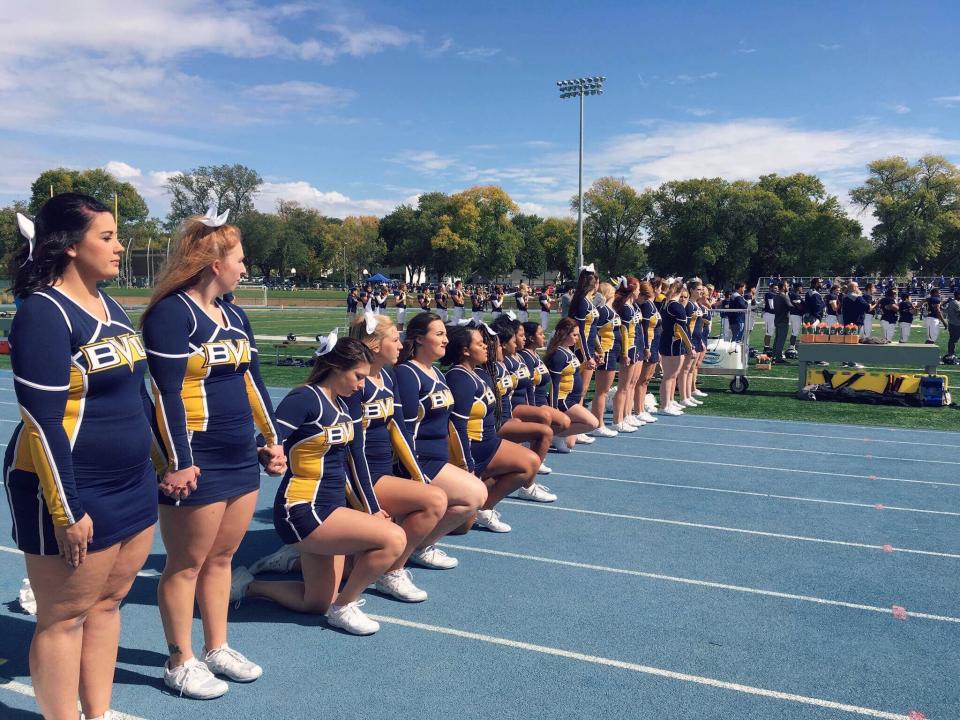
In the days leading up to our September 30 homecoming football game, I approached the black football players and cheerleaders, telling them about my idea to kneel during the national anthem, just like Colin Kaepernick. He's given so many black people, like me, the courage and inspiration to seek change in this country and I admire that powerful message so much. We can’t be scared, I told them. This movement is bigger than us. We agreed kneeling was a peaceful way to protest against the social injustices black men and women face every day in the U.S. When we approached our coaches to explain the planned action, they were extremely supportive.
You don’t even need to explain why you want to protest, they told us. It's your right to do so.
Some of the white cheerleaders even agreed to kneel with us or support us by resting their arms on our shoulders. The squad is made up of all different races, cultures, and socioeconomic backgrounds, and I felt like we could make a real difference and ignite a much-needed conversation on the Buena Vista campus.
When the national anthem singer started belting out the song, nine cheerleaders and a handful of football players took a knee. The stadium went completely silent. All you could hear was the wind and her voice. I expected boos, but there were none. I expected people in the stands to throw stuff at us, but they didn't. I thought, Wow, people are really thinking and reflecting on the purpose of why we’re doing this. I grinned at my teammates - we had just pulled off a successful peaceful protest.

The next morning I woke up to my phone blowing up with tags on Facebook and posts in our student newspaper comments section calling for my expulsion from Buena Vista. Alumni donors threatened to pull money. Students called me racist. For every positive comment, it seemed like there were 300 negative ones. One week later, the cheerleaders and football players who protested received an invitation from President Merchant to join him for dinner on October 3. We met him in a private forum room, where he asked us if we’d be willing to compromise. I was caught off guard.
When it comes to black lives being taken, that’s not something you can compromise on, I explained. This isn’t the type of thing that can be compromised. He nodded his head and pointed out that some NFL players were taking a knee before the anthem, but standing as a unified team during the anthem - and asked if we'd be willing to do the same. I told him I couldn’t do that. Sure, there’s still kneeling involved, which people perceive as a protest for social injustice, I explained, but then you get up and stand for something you just claimed you couldn’t stand for.
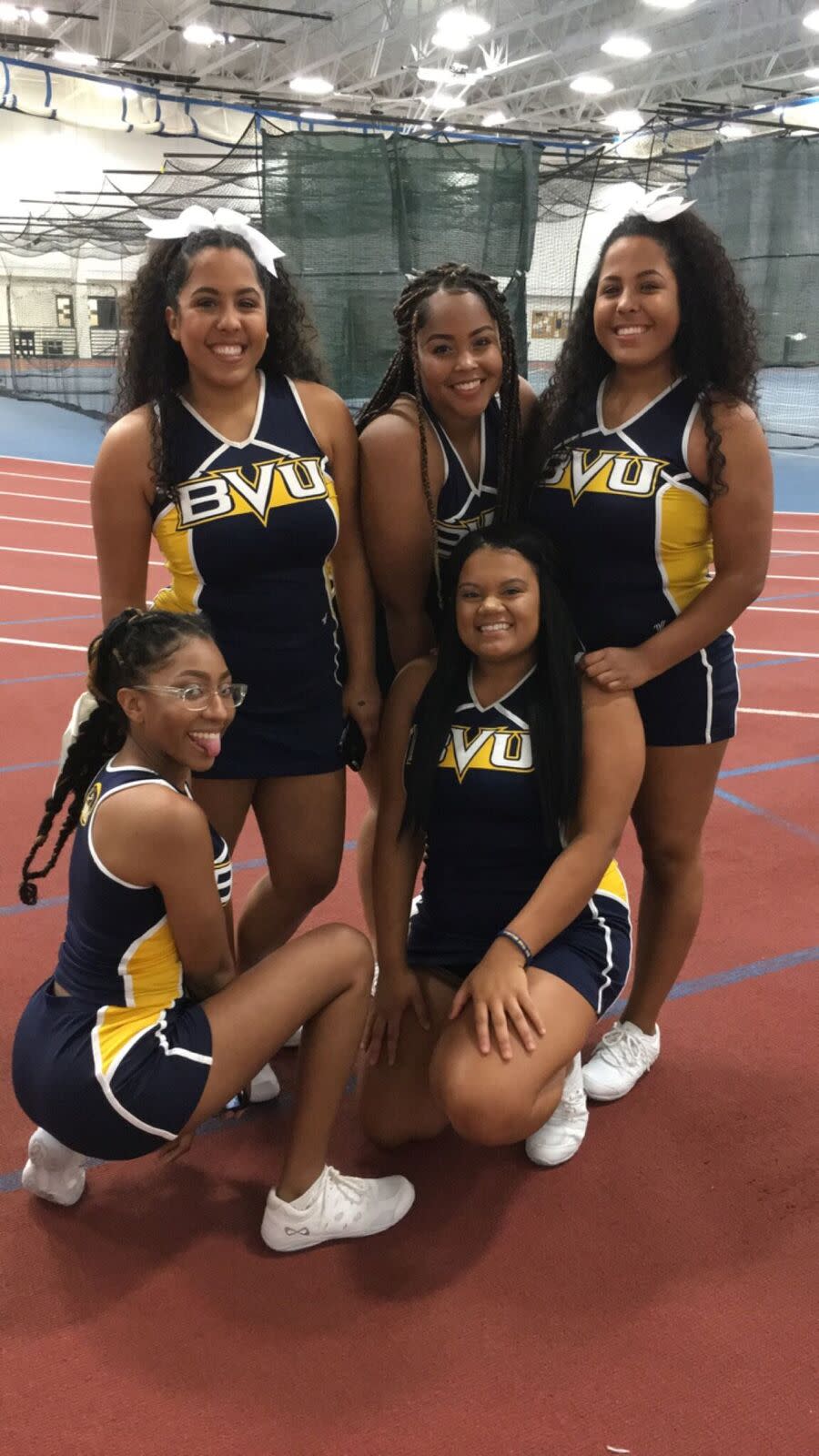
Three days later, our entire campus received an email with the subject line Moving Forward from President Merchant. It read:
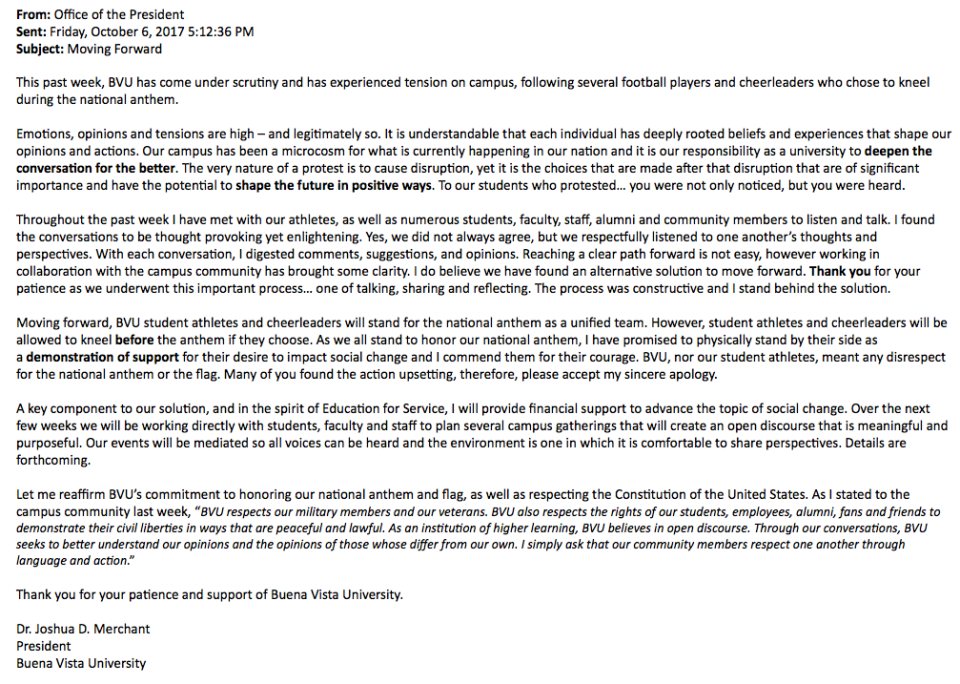
BVU student athletes and cheerleaders will stand for the national anthem as a unified team. However, student athletes and cheerleaders will be allowed to kneel before the anthem if they choose. As we all stand to honor our national anthem, I have promised to physically stand by their side as a demonstration of support for their desire to impact social change and I commend them for their courage. BVU, nor our student athletes, meant any disrespect for the national anthem or the flag. Many of you found the action upsetting, therefore, please accept my sincere apology.
I was shocked; I couldn’t hold back my tears. I'd just told the president this was something we couldn't compromise on. The next week, my dad, stepmom and I met with President Merchant. We discussed his letter and my safety on campus, after I received so much backlash online. He explained his decision was the safest option for the campus community and for me. I disagreed.
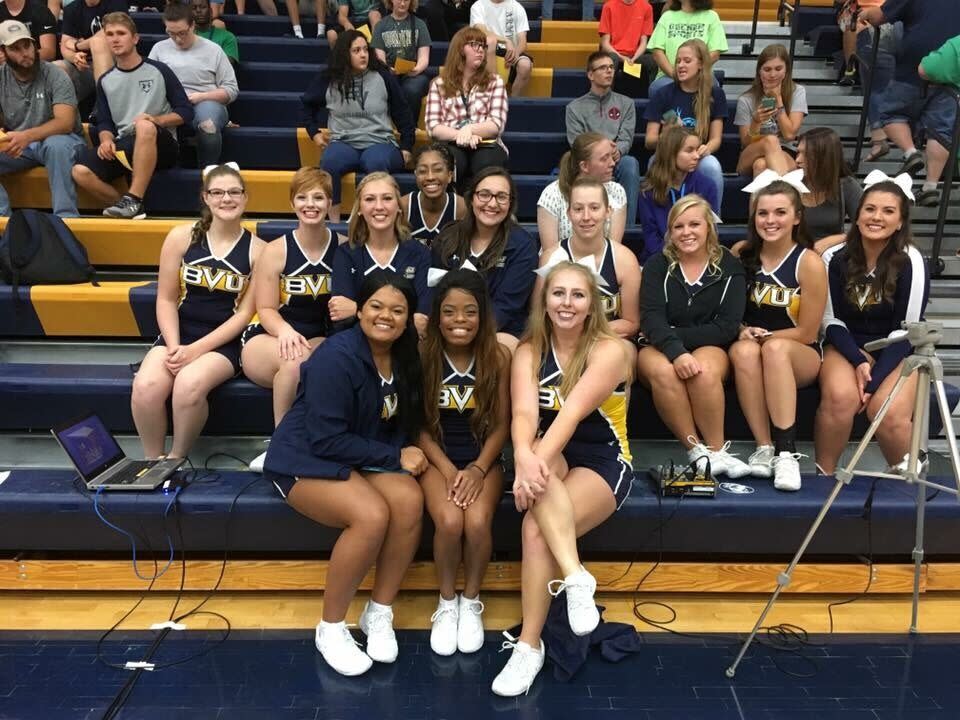
Our next home game was on October 21, and, after talking to my parents, I decided to kneel again. But before the game, I met with our athletic director, who told me ignoring the president’s new policy violated the school's code of conduct. According to Article VII, Section 9, I could face sanctions for failure to comply with the request of a University official. I plan on going to law school to become a civil rights lawyer, so having a misconduct mark on my record or being suspended from school isn't an option.
I felt like I was being backed into a corner for doing what was right. Instead of taking the field for the anthem, I sat with three other girls in the recreation center, feeling humiliated and defeated.
After the game, I decided I couldn't set aside my personal beliefs on social justice. But I knew I didn't want to put my cheer team at a disadvantage, either. So I began drafting my resignation letter.
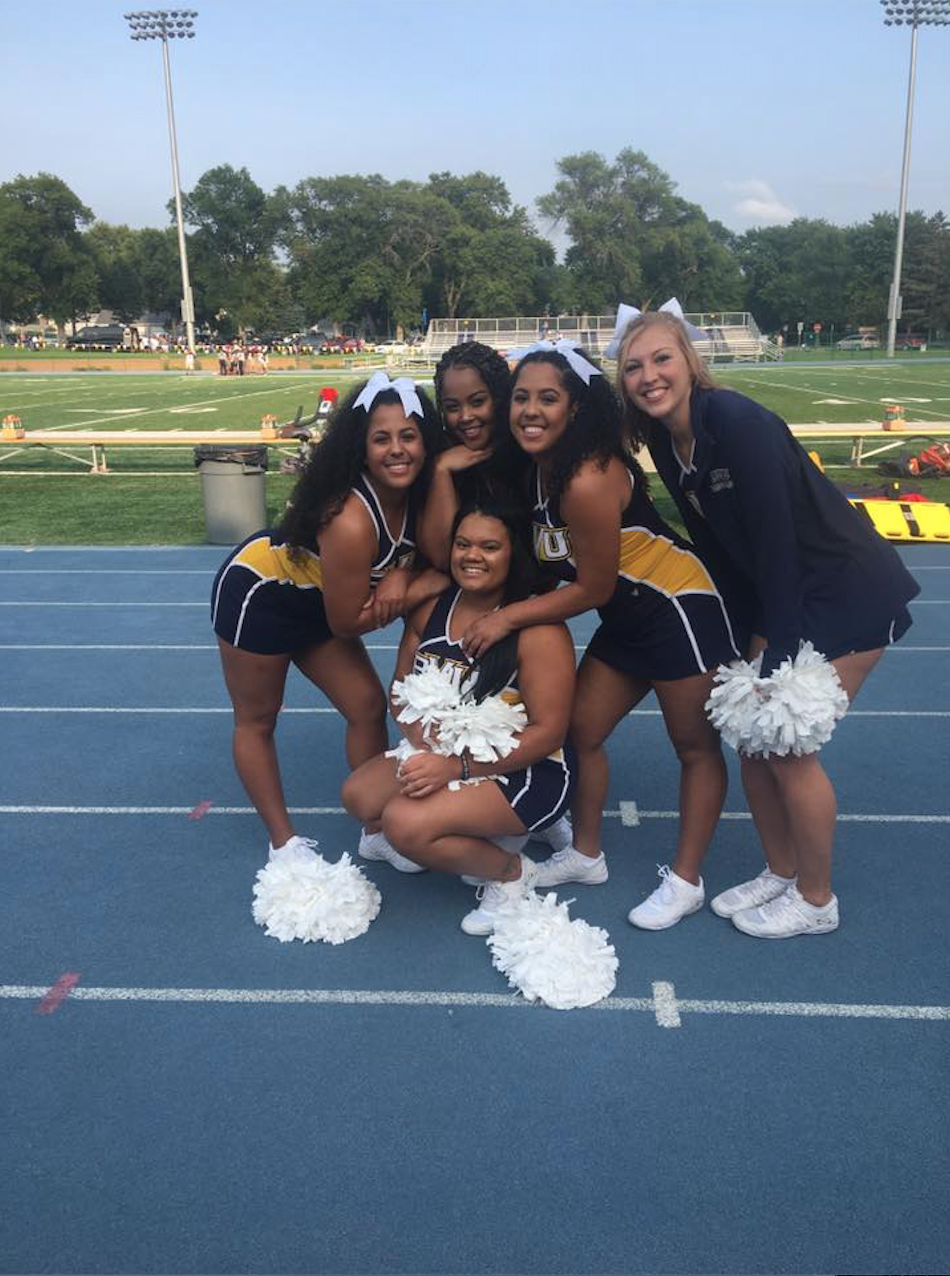
Since quitting the team on October 25, online commenters and other students have accused me of being selfish, ignorant, and attention-hungry. But I didn't do this for fame, I did this to bring attention to inequality in a place, like Iowa, where it needs to be talked about. And on a campus like Buena Vista, which has a predominantly white student population.
I grew up in Des Moines, two hours away from Buena Vista's Storm Lake campus, and went to Saydel High School. I was the only black student in my graduating class of 200 people. I was on the cheer squad and, for the most part, I fit in. But there were incidents. I'd see confederate flags around, and, a few times, people said the N-word to me. I remember the day after Trayvon Martin was killed, on February 26, 2012, we talked about it in class. I felt mad, upset, and confused. But I remember other kids laughing and saying, "Well, of course, George Zimmerman got off, he’s white." I was sick to my stomach, but that was the moment I knew I wanted to change the world when I got older.
When it comes to black lives being taken, that’s not something you can compromise on.
When I got to Buena Vista University in 2016, cheer was the only thing that made freshman year bearable. I thought I’d left all the racism behind at Saydel, but one night, I was on the bus coming back from a campus bar, when a white student told me and my roommate, who is also black, to sit our black asses in the back of the bus. At a school with only 50 black students out of the 1,500 students total, it was scary and isolating. School admin started an investigation, and I testified in front of a panel, which also heard from the student. The student denied the incident, and the case was dropped. I wasn’t mad at the school, just upset because no one could understood why this was such a big deal. But I didn't let it hold me back.
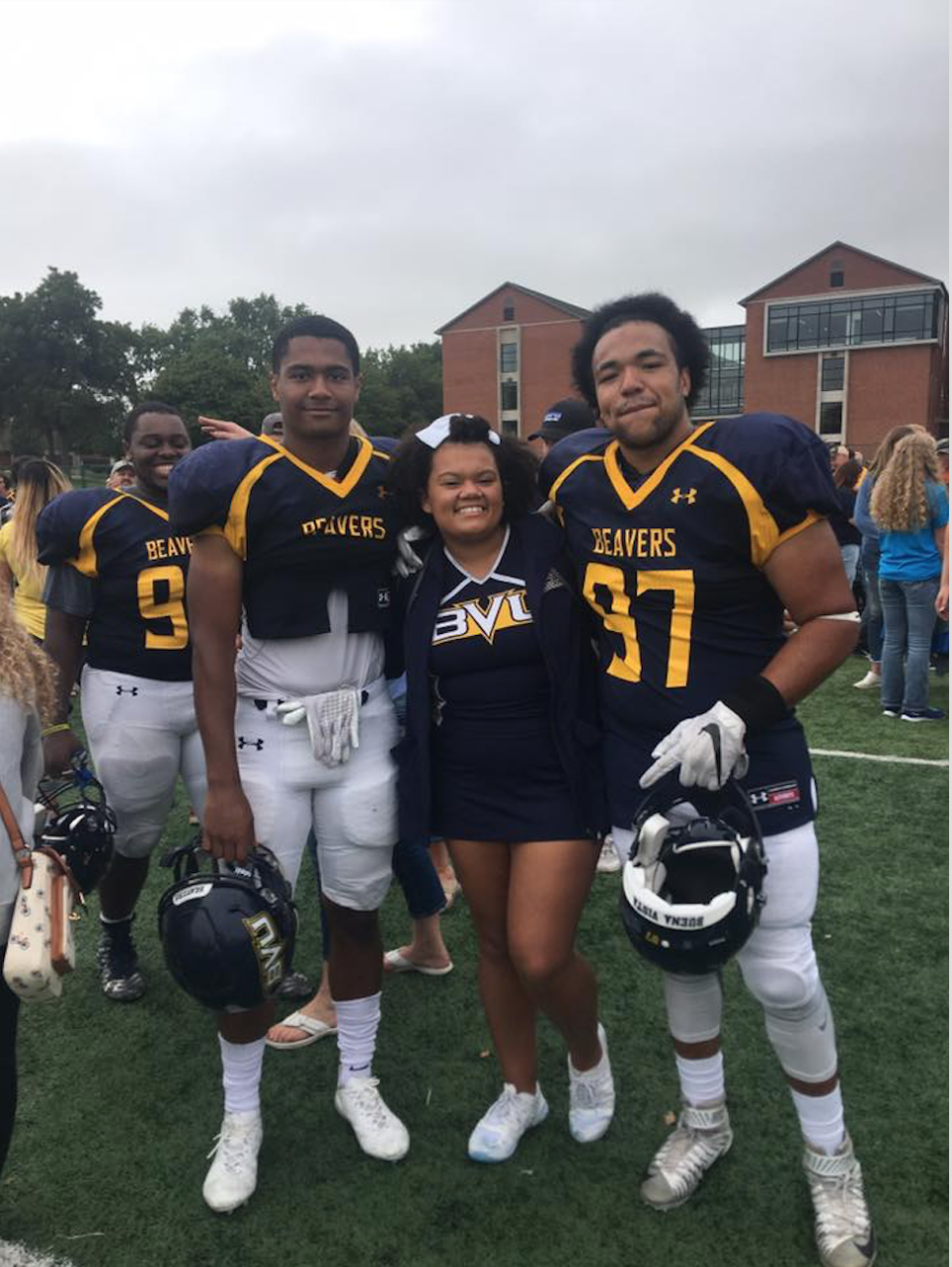
I founded Buena Vista's Black Student Union this summer and we now have about 30 members. On November 6, we wrote a letter to President Merchant asking him to re-evaluate the new policy he instated in regards to standing for the national anthem:
We believe that this policy doesn't uphold the core values we perceive BVU to teach its students. We believe this university is trying to teach us to articulate our core beliefs about what it means to be a good citizen, to recognize and respect diverse viewpoints, and to engage in vigorous and open debate. And that is what we are trying to do.
We do understand the idea of the compromise that the university believes it offered. But there cannot be compromise when the topic is social inequality and when, around the country, black lives being taken for reasons that are inequitable. The type of compromise the university suggests would subvert the purpose of the very message we were trying to educate others on.
Further, we as students feel that the administration’s decision to prohibit team members from taking a knee was strongly influenced by a powerful and overwhelming reaction from alumni and community members. But we want you to know that there are many other alumni, supporters, and community members who do support taking a knee during the anthem. So, we as students are going to invite citizens who support this movement to send letters, emails, or other communications to your office to show furthering why re-evaluating this policy would be beneficial.
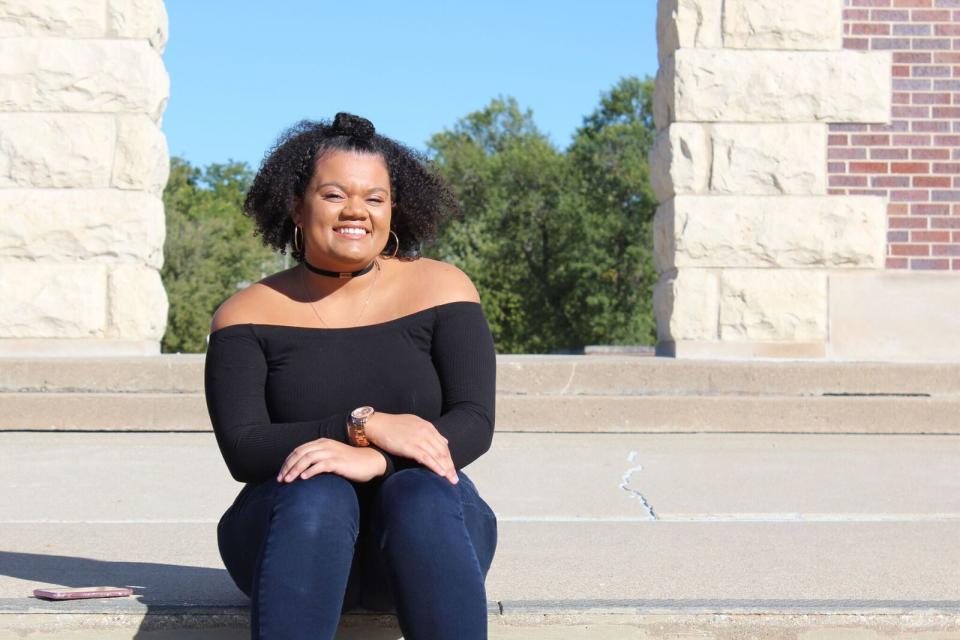
I miss cheer every minute of every day. But I know in my heart that I did the right thing. I can't sit still while kids like Jordan Edwards get shot and killed by police. I can't just do nothing after experiencing racism myself. Resigning from my Buena Vista cheer team may be a small gesture, but I know it can make a difference.
[Editor's note: Merchant confirmed both meetings mentioned in the piece with Cosmopolitan.com and says Parker was instructed to contact campus security if she ever felt she was in any danger.
In regards to the bus incident, Merchant says he is "unable to speak to the specific instance or subsequent action taken by the university on her behalf."
Merchant has read the Black Student Union letter, which Parker shared in full on her Facebook page here, but is not planning a written response. In response to Parker's protest, the school plans to work closely with the BSU to bring in speakers and put together workshops meant to direct conversation and incite change.]
You Might Also Like

